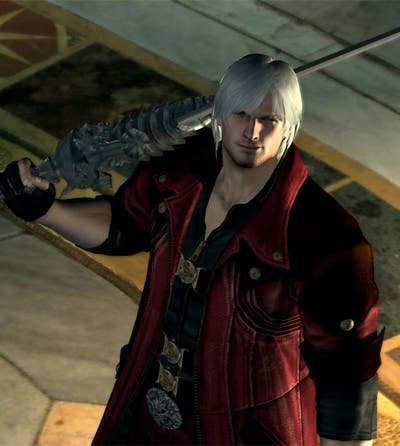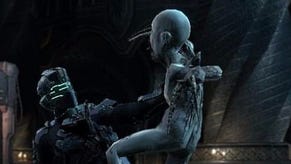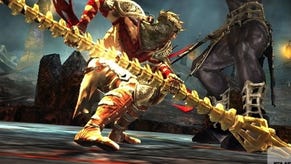Dante: from text to TV
Fiction burns.
It's a personal epic in which he outlines his rigid and detailed view of human morality, free will, and the Christian afterlife, but also rails against his corrupt political enemies (the Pope is pilloried as the "chief sinner"). But above all, it's a poem about love; specifically, the poet's love for Beatrice, for whom he journeys through Hell and Purgatory to be reunited in Paradise.
Which makes EA's choice of the button-mashing action genre, with Dante cast as a scythe-wielding demon slayer, a little odd, to say the least.
"It's one of the great love stories of all time and I don't think that's too esoteric a theme for a videogame," insists Jonathan Knight, exec producer, writer and director of the project. "Everybody deals with love, right, so it should be in games."
A former arts student and one-time playwright, Knight fiercely defends his team's interpretation of the text, although he is not unaware that the portrayal in particular of Dante could ruffle some feathers, not least amongst Florentines.
"It's a good question; I don't know ultimately," he says. "Everyone will have their own reaction; we're not too worried about it. Look, I've read the poem at least six or seven times now; I read it again on the plane over, I'm doing a lot of the writing in the game myself. I take it quite seriously. But yeah, we're making a videogame so we're going to take some liberties." He's getting defensive, but the point is clear enough.
"I think it might be a little bit of a leap of the imagination, but I think people like Dante, like Shakespeare as another example, these are guys who in their time were fascinated with pop culture. They didn't intend for their work always to be put up on such a pedestal and so it's not unusual that a new medium like videogames is going to treat that kind of subject matter. I'm sure when they made the first TV show based on one of these great works of literature, the first movie, play - it's always going to be a little controversial perhaps for some people."

Well, Shakespeare's theatrical output was populist by definition; and Dante's obsession with pop culture depends on your definition of the term. His clear, specific aim with The Divine Comedy, which he set out in a letter, was "to lead men from a state of wretchedness into one of happiness". We'll drink to that. But within that is a moral purpose, which EA is seeking to preserve in its game.
Most obviously, this will be captured in the game's structure. The nine circles of Hell, that sliding scale of sin from flesh to malice which Dante so fastidiously constructed - notably against the grain of accepted medieval thought - are practically written up as off-the-peg level designs. And the concept of free-will and the indeterminate nature of the afterlife is rendered, a little crudely, in a BioShock-aping choice mechanic where Dante can either Punish or Absolve a wayward soul.
Dante also went big on the topography of Hell, with EA recreating landmarks, rock formations and buildings according to the verse. "If you know the poem you'll recognise them in the game," reckons Knight.
And then there's the poetry itself. "There's going to be a lot of commentary from Virgil [the classical Roman poet, and Dante's companion in the text] and other characters in the game, and there's a lot of the poem that's going to be in the game," says Knight.




